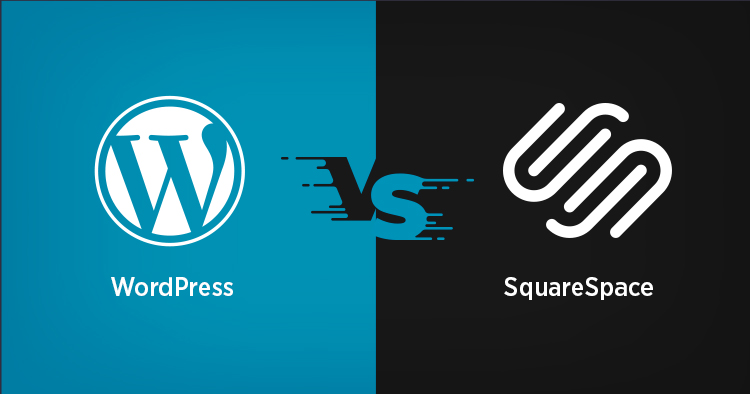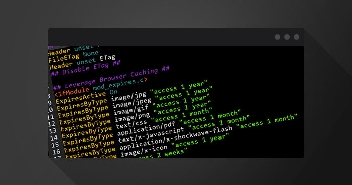
Squarespace and WordPress are two of the most popular website-building platforms. However, both are completely different in terms of features, usability, pricing, and integration. While they are used for a similar purpose, both platforms mainly cater to different audiences.
In this article, I will take you through the major differences between the two to make an informed decision on which one suits you better. I’ve been in the blogging industry for some time now, and I often come across users asking which of the two platforms they should choose. Since both are used for building websites, users have difficulty deciding whether to use WordPress or Squarespace.
So before moving to an in-depth discussion, we need to establish a basic understanding of both platforms.
What Is WordPress?
WordPress is a platform or a CMS (Content Management System) that allows users to create websites of all sorts. It’s the most used content management system globally, with more than 60 percent market share.
As per Netcraft’s research, 455,000,000 websites out of the total 1.3 billion websites worldwide are using WordPress. This data implies that 20 percent of all self-hosted sites and around 35 percent of all websites use WordPress. These numbers are enormous and are more than enough to reflect the power of WordPress.
There are two types of WordPress available to users:
- Self-Hosted WordPress
- Hosted WordPress
1. Self-Hosted WordPress
Self-hosted WordPress is the free version of the CMS and is an open-source piece of software available for download at the WordPress.org repository. You need third-party tools like plugins, themes, and a hosting solution for your website to work on a self-hosted WordPress,.
The open-source nature of self-hosted WordPress makes way for endless customization and flexibility. This is one of the reasons why developers often choose WordPress as it lets them play with its functionalities and create any website they want.
Because it’s free to download, users often have this misconception that there is no cost attached to launching a WordPress website through the self-hosted WordPress. The software is free but includes other costs, like hosting, domain registration, 3rd party plugins, a premium theme, and much more.
2. Hosted WordPress
Hosted WordPress is usually referred to as WordPress.com, which is a separate product owned by Automattic. I can understand if this is getting too confusing for you, but keep reading to clear your mind.
Matt Mullenweg founded WordPress almost 16 years ago as open-source software. Later he established Automattic and created a version of WordPress which is more suitable for regular users who are not accustomed to coding and development.
Unlike self-hosted WordPress, WordPress.com comes with a monthly subscription charge which gives you access to several features that allow you to create and maintain WordPress websites.
What Is Squarespace?
Squarespace, on the other hand, is a website building platform, and just like hosted WordPress, it requires you to pay a monthly fee when you sign up for their services. There are two versions of Squarespace available to users at this moment. Most users use the standard version, which is a website builder with drag-and-drop functionality.
Unlike self-hosted WordPress, Squarespace has its own templates and tools that you can use to create your website, so you can’t use third-party tools like plugins, themes, or hosting. Everything you need comes with the standard version of Squarespace.
Squarespace’s Developer Platform is used by developers that allow further customization. Developers can add more functionalities to their Squarespace websites and can even create more templates. This version of Squarespace also includes different tools and modules for developers like a local development environment, Toolbelt, Javascript, and more.
Now that we have understood what WordPress and Squarespace have to offer, let’s look at what makes them so different from each other.
Note: In this article, I’ll compare the self-hosted WordPress with the standard version of Squarespace in this square-off.
WooCommerce vs. Squarespace – Which One is The Best Ecommerce Platform in 2022?
Squarespace vs. WordPress
We have compared both website builders in 6 different domains to help you make the right decision. So, without further ado, let’s jump into the real battle of Squarespace vs. WordPress.
Pricing Plans
Both Squarespace and WordPress come with a price tag.
Squarespace pricing plans range from $12 to $40, with all of them consisting of a Free Custom Domain, Hosting, SSL certificates, and 24/7 Support.
The $26 and $40 plans are also ecommerce compatible, which means they include features like Fully Integrated Ecommerce, Donations, Point of Sale, Ecommerce Analytics, Gift Cards, and Advanced Shipping.
On the other hand, WordPress is free to download, but it doesn’t mean that you won’t have to pay anything if you decide to launch your WordPress website. First of all, you will need a hosting provider to take your site live on the web. WordPress hosting will cost you around $10 to $30 per month, depending upon your requirements. If you are using managed WordPress hosting from Cloudways, it has a beginners package of $11/mon.
Furthermore, you will need a WordPress theme that is both free and paid. You can find free themes from the WordPress repository, but it’s always recommended that you use a premium theme for an improved and more customized user experience. Free themes are mostly outdated, which leaves loopholes for hackers to hack into your website, whereas most premium themes come with regular updates and support for future WordPress versions.
A premium theme will cost you anything from $30 to $300, depending on your website. You can find these themes on various WordPress marketplaces like Themeforest, Themeum, aThemes, TemplateMonster, etc.
To add more functionality to your WordPress website, you would need plugins that are mostly available for free on the WordPress repository. While most of these free plugins are safe to use, you would still need the premium versions as your site grows. Premium WordPress plugins can cost you anything ranging from $4 to $100.
Winner: WordPress
Ease of Use
Squarespace is a drag-and-drop website builder that makes it very easy for nontechies to launch their websites from scratch. I signed up for their trial version for the sake of this blog to show you how Squarespace’s WYSIWYG editor works.

So I started creating my Squarespace website after choosing one of their templates. To add content to my page, I clicked Page and selected the page where I wanted to add my content.

To add content to my Blog section, I clicked on the plus icon and started writing content.

Once I was done writing the content, I simply clicked on Publish and the content was published!

Easy peasy, right?
WordPress, on the other hand, has two different editors. Before 2018, WordPress had the Classic Editor, which was a bit old school, but users loved it because of its simplicity and effectiveness.
Here’s what the Classic editor looks like:

You can see how easy it is to add a new post to your WordPress website through the classic editor. However, some new users still find working with WordPress quite tricky compared to other platforms like Squarespace or Wix.
With WordPress 5.0 came Gutenberg, the new WordPress editor, aimed at users who were more accustomed to drag-and-drop page builders.

Just like Squarespace, Gutenberg uses blocks to add different types of content to a page. The drag-and-drop functionality was aimed at beginner users who found it difficult to work their way around the Classic Editor.
Winner: Squarespace
Flexibility
Flexibility is where WordPress pins down any CMS or website builder that crosses its path. I mentioned earlier that WordPress is open-source software that can be molded to create any website you want. The best part is that you don’t always need a developer to explore WordPress’s flexibility.
A wide array of WordPress plugins is one of the main reasons why WordPress got so popular so quickly in the first place. After its launch, developers quickly realized the potential and started developing plugins that would further enhance a websites’ functionalities.
Now, if you want to create a membership website on WordPress, for example, all you have to do is install a WordPress membership plugin like MemberPress. Your website will be converted into a fully functioning membership site.
However, there is a big downside to using plugins on your WordPress website. Some of these plugins might have compatibility issues that can break your site or even leave loopholes for hackers.
Squarespace doesn’t have as many plugins like WordPress to enhance its functionality. Still, the upside is that you don’t have to worry about compatibility or loopholes because the team develops them at Squarespace. However, you don’t get the same number of plugins that WordPress offers, so WordPress is the ultimate option as far as flexibility is concerned.
Winner: WordPress
Design
Squarespace comes with premade templates for different websites. Currently, there are over 70 such templates/themes that you can use to design your websites. Though this number might not seem much, they are enough to help you design any kind of website you need.

On WordPress, there are over 3,500 GPL-licensed themes, a number no other CMS or website building platform can match. These themes are developed mainly by third-party theme developers and are sold on different theme marketplaces. However, some of these themes will be outdated or have poor design and functionality, and some might even have compatibility issues, so it’s tough to find the right theme for your website.
The upside of using WordPress themes is that these themes can be wholly customized, which means you don’t have to stick with a specific template. With the help of a good developer, you can change it to whatever you like.

Apart from themes, Squarespace has some decent design options within its editor. You can change fonts, colors and even add buttons to your webpage through the editor.
Winner: WordPress
Ecommerce
Squarespace offers an effective ecommerce solution to its users. The $26/month and $46/month plans come with ecommerce integration where users can create product pages, install checkout pages, have robust ecommerce analytics, and sell products on Instagram.
You can also integrate your Squarespace ecommerce site with different third-party tools like Mailchimp for email campaigns and Zero to sort out your accounting tasks. For your emailing needs, you can integrate G-suite to your ecommerce platform and create branded email addresses for your business. Along with that, you can integrate various payment options like PayPal, Stripe, Apple Pay, Credit/Debit card, and more.
On the other hand, WordPress integrates with WooCommerce, which is one of the most popular ecommerce solutions around and powers more than 28 percent of all online stores. If you are using WordPress to run your website, all you need to do is install the free WooCommerce plugin, and your site will be converted into an ecommerce store. You can then add product pages to your WordPress site without spending anything extra.
Just like WordPress, WooCommerce integrates with an array of plugins or extensions that will let you enhance the functionality of your online store. Since it is also open-source, there is an extension for almost everything; Enhancement, Marketing, Payments, Shipping, Store management, you name it. You can find a solution for nearly everything with WooCommerce, including WooCommerce hosting. What makes WooCommerce even better is that many of these extensions are free.
Winner: WordPress
SEO
If you plan to start a blog in a competitive market, you would need a solid SEO plan and tools to execute that plan. With Squarespace, you can easily add Meta Title, Meta Description, and a custom URL without installing any add-on or plugin. You can also set your page to No-Index by clicking on the checkbox as shown below.

Apart from that, you can easily set your post structure by defining H1s and H2s, customize image alt text, set 301 redirects, and set canonical tags. Squarespace pretty much comes fully equipped with full SEO functionalities that you would need to rank your site higher up in search engine results.
On the other hand, WordPress offers an equally powerful SEO functionality through SEO plugins that let you prepare your site for better search engine rankings. One such plugin is the Yoast SEO plugin that enables you to set Meta title, Meta description, and URL for your pages pretty quickly.

You can also optimize your site for speed by installing any caching plugins that cache all your static data and loads it quickly every time a visitor visits your site. To make your site mobile-friendly, you can install AMP plugins that create a mobile version of your web pages.
Winner: WordPress
So Which One Should You Go For?
Squarespace is the ultimate website builder aimed at users who want a beautiful website without committing all their time and effort to create one. The idea behind a drag-and-drop site builder is that users shouldn’t have to learn coding and development to build a website with their desired functionality and design.
So if you are one of those users looking to create a website without worrying about the nitty-gritty details and technicalities, then Squarespace is the way to go.
With WordPress, you get a lot more control over your website. If you are a customization enthusiast and like to make changes to your website’s design and functionalities to an inch of your liking, then WordPress is the best solution for you.
Also, with WordPress, you can create any site you want, no matter how complex it gets. With the right development skills, you can mold WordPress into accomplishing any goal with your website.
As for us folks at WPblog, we’ve always preferred WordPress over any CMS. You might think it’s because WPblog is a WordPress blog, but no. We could have chosen to build the blog on any CMS, but WordPress is a powerhouse, and if you take out the time to learn it from top-to-bottom, you can conquer the online world with it! 😉
So what solution are you going for? Do you have experience in both? Let me know in the comments below, and we can discuss things further!
Disclaimer: This is a guest post contributed by WPblog.com.
Mansoor Ahmed Khan
Been in content marketing since 2014, and I still get a kick out of creating stories that resonate with the target audience and drive results. At Cloudways by DigitalOcean (a leading cloud hosting company, btw!), I lead a dream team of content creators. Together, we brainstorm, write, and churn out awesome content across all the channels: blogs, social media, emails, you name it! You can reach out to me at [email protected].


